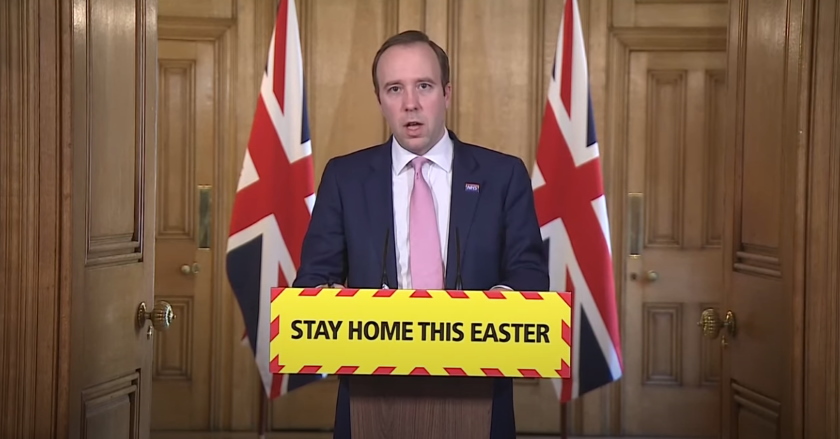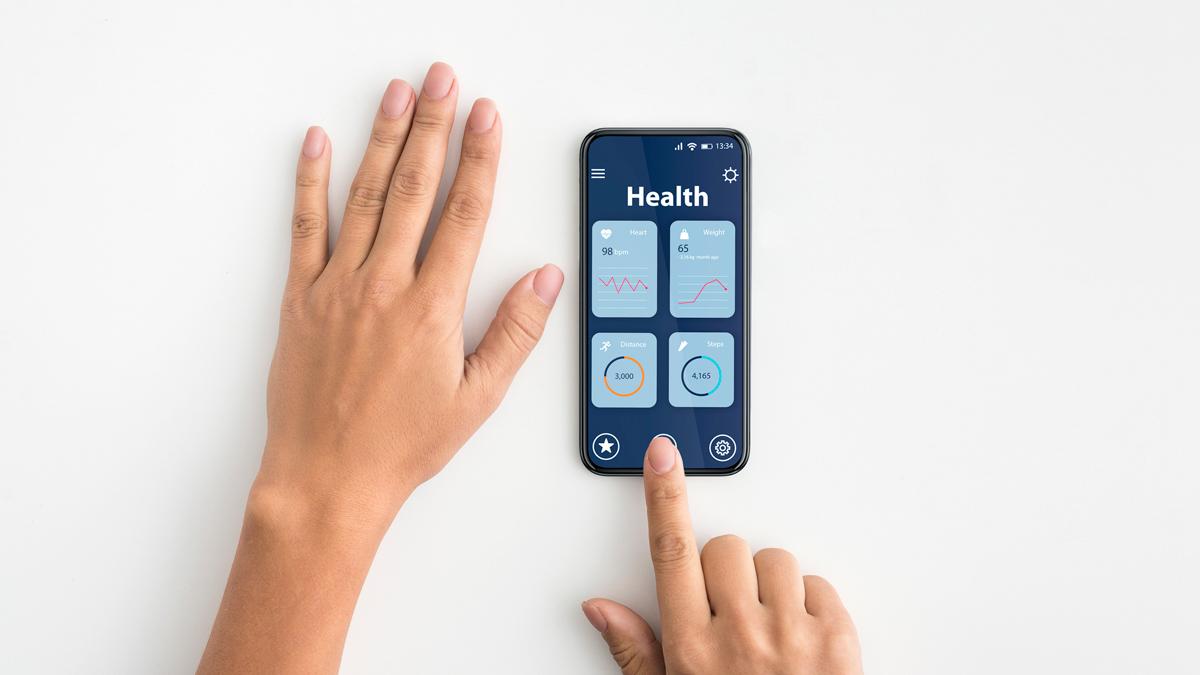UK will go ahead with contact-tracing app, says Hancock

UK Health Secretary Matt Hancock has confirmed the government plans to use an app that will warn people if they have been in contact with someone infected with the coronavirus.
The move follows calls for so-called contact-tracing apps to be used widely across the UK population to try to curb the spread of the virus and make it easier for the country to move out of lockdown before the economy is crippled.
Speaking during a government press briefing over the Easter weekend – as the number of deaths from COVID-19 overtook the 10,000 threshold – Hancock said that a new NHS smartphone app for contact tracing is being developed with “the world’s leading tech companies.”
“If you become unwell with the symptoms of coronavirus, you can securely tell this new NHS app, and the app will send an alert – anonymously – to other app users that you have been in significant contact with over the past few days,” he said.
Those contacts will then be able to “act accordingly,” added Hancock. There will be two levels of alert, with a higher-level message sent to contacts of people who are subsequently confirmed to be infected with SARS-CoV-2, the virus that causes COVID-19, saying they should self-quarantine.
The app is due to be being tested in a pilot study by NHSX – the health service’s digital unit – involving families at a secure location in the North of England this week, according to BBC news.
Privacy issues are a perennial concern with this kind of digital intervention of course, and Hancock insisted the data would be kept securely for use by the NHS for care and research only, and for no longer than necessary. The source code of the app will also be published so it can be scrutinised.
Experts have previously suggested that more than half the UK population would have to use contact-tracing apps in order for them to be effective. The NHS app would be entirely voluntary, so its success will hinge on persuading the public to embrace and use it.
Apple and Google
The UK announcement came shortly after Apple and Google said they were collaborating on application programming interfaces (APIs) and operating systems that could be made available to developers of contact-tracing apps.
The first APIs designed to work across Apple and Android phones should be available next month, and NHSX told the BBC it now intends to integrate the API into its own app.
Down the line, Apple and Google say they will develop a “broader Bluetooth-based contact tracing platform” that wouldn’t require an app to be downloaded and – according to the companies – address privacy concerns by keeping each user’s identity hidden.
The premise of the approach is that authorities wouldn’t be aware of a person’s individual status as there would be no central repository of data.
Contact-tracing apps have already been deployed in China and South Korea, and have resulted in some kickback on issues like data protection and privacy.
France and Germany are also said to be developing apps, and a broader European initiative – the Pan-European Privacy-Preserving Proximity Tracing (PEPP-PT) – is also working on “standards, technology, and services to countries and developers” for contact-tracing.
Meanwhile, some authorities in the US are considering using an app developed by the Massachusetts Institute of Technology (MIT) called Private Kit, reports Reuters.
Finding the undiagnosed
Meanwhile, the National Institutes of Health (NIH) in the US has just started a study that it hopes will provide a best guess of how many people in the US without a confirmed diagnosis of SARS-CoV-2 have antibodies to the virus, showing they have been infected previously.
Scientists will collect and analyse blood samples from up to 10,000 volunteers in the study, which will attempt to show how much the virus has spread in the US undetected, and give a better idea of the magnitude of the epidemic.
"This study will give us a clearer picture of the true magnitude of the COVID-19 pandemic in the US by telling us how many people in different communities have been infected without knowing it, because they had a very mild, undocumented illness or did not access testing while they were sick," said Anthony Fauci, head of the National Institute for Allergy and Infectious Disease (NIAID).
“These crucial data will help us measure the impact of our public health efforts now and guide our COVID-19 response moving forward.”












